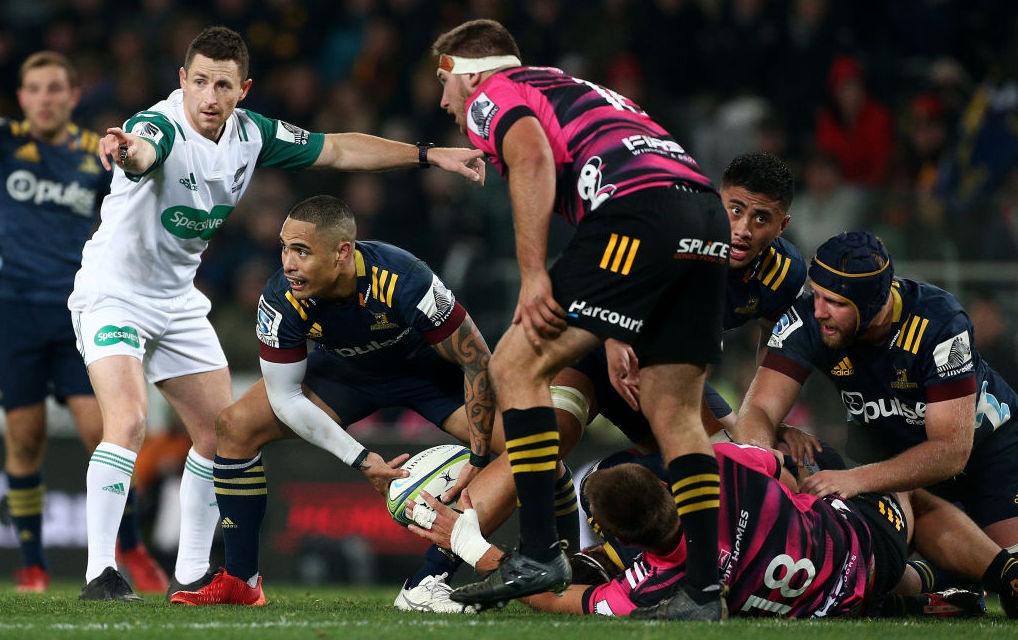There needs to be more consistency in terms of how rugby is officiated if the sport is going to move forward, writes former Bok captain JEAN DE VILLIERS in the latest issue of SA Rugby magazine.
READ: What’s in our latest issue?
It’s been great to see rugby return, albeit in the form of domestic tournaments in New Zealand and Australia. It’s also been interesting to see how teams have gone about adapting to the breakdown and offside laws – which are being implemented more strictly than before.
There will be a period of transition as players and coaches come to terms with the ‘changes’. That said, with Test rugby on hold and with some countries still in limbo, this may be the perfect opportunity to address some of the shortcomings in the game.
There needs to be more consistency in terms of how rugby is officiated if the sport is going to move forward in the coming years. Refereeing is an incredibly tough gig and I’m not sure the lawmakers do the referees any favours by allowing so much leeway for interpretation – especially in areas such as the breakdown.
The implementation of these laws can vary from referee to referee and the manner in which a particular law is enforced can change over the course of a single season.
How often have we seen referees dishing out penalties and free kicks in the first four or five weeks of a tournament and then adopting a less stringent approach at the back end of the campaign?
I remember a few years back, a lot of Vodacom Super Rugby teams were punished for skew scrum feeds in the first week of the tournament. By the time the playoffs arrived, however, this offence went unsanctioned more often than not.
It can be frustrating for players and coaches, who simply want to know what does and doesn’t constitute a penalty offence. A lot of effort goes into planning for a game and it’s still frustrating to note that there are so many grey areas and that different referees may choose to police a particular situation differently.
The laws shouldn’t be grey, of course, but black and white. That would go a long way towards serving everyone involved – and again I must stress that referees would benefit from a simpler and more universal set of laws.
Rugby is always going to be a contest between attack and defence. It’s the job of the all the officials to ensure this contest is fair. The policing of the offside line has been a massive concern in recent years. It’s a problem that has to be addressed sooner rather than later.
Referees have to be stricter and more consistent in this area. They also need to use all the power at their disposal to reach a correct decision – and here I’m talking about the two assistant referees as well as the TMO.
The man in the middle has a lot to consider in any given situation. With that in mind, why can’t the assistant referees monitor the offside line from their positions on the side of the field?
I see that World Rugby is investigating whether laser beams could be used to police the offside line. I’m all for officials using technology to get the right decision, as long as the process doesn’t slow down the game.
If one or both of these methods are used to aid the referee, defenders will struggle to break the law without sanction and ultimately attacking sides will have more space to operate.
Time will tell whether this new emphasis on the breakdown and on the offside line will have the desired effect. One would hope, however, that the referees stick to their guns and show the same vigilance in the playoffs of the tournaments that they did in the first week.
One would also hope that the officials work together as a team to ensure the standards of the game are upheld and that the powers that be realise their lofty goals to improve the final product.
*De Villiers is a former Bok captain and World Cup winner, who earned 109 Test caps. He now serves as the head of philanthropy at Citadel. Follow him on Instagram @jean_devilliers.





